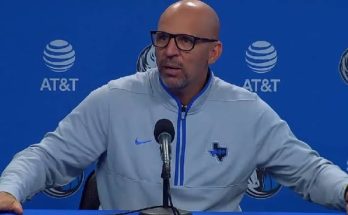Bear Bryant is considered by many to be one of the greatest college football coaches of all time, and best known as the head coach of the University of Alabama football team, the Alabama Crimson Tide, from 1958 to 1982. During his 25-year tenure as Alabama’s head coach, he amassed an astonishing 232 wins, six national championships, and thirteen Southeastern Conference (SEC) titles, forever altering the landscape of college football and cementing his legacy as a true icon of the sport. Known for his trademark houndstooth hat, commanding presence, and unmatched intensity, Bryant was more than just a coach—he was a larger-than-life figure who inspired generations of players, fans, and fellow coaches. His approach to leadership, discipline, and strategy transcended football, making him a revered figure not only in Tuscaloosa but across the entire country.
Born Paul William Bryant on September 11, 1913, in Moro Bottom, Arkansas, he was the eleventh of twelve children. From humble beginnings, he earned the nickname “Bear” as a teenager after he agreed to wrestle a bear at a traveling carnival for money—a name that would follow him throughout his life and eventually become synonymous with excellence in college football. After playing end at the University of Alabama from 1932 to 1935, where he was part of a national championship-winning team in 1934, Bryant began his coaching career as an assistant at various programs including Alabama, Vanderbilt, and Georgia. His first head coaching job came in 1945 at the University of Maryland, but he quickly moved on to Kentucky and then Texas A&M before returning to Alabama in 1958—a homecoming that would define the rest of his life and career.
When Bear Bryant arrived at Alabama, the Crimson Tide was a shell of its former self. The program had fallen into mediocrity, and fans yearned for a return to glory. Bryant didn’t waste time. He famously told the media, “Mama called, and when Mama calls, you just have to come running.” That year, he led the team to a 5-4-1 record, but it was just the beginning. By his third season, Alabama was back among the nation’s elite, going 11-0 in the regular season in 1961 and capturing his first national championship with the Crimson Tide. That championship was the first of six he would claim at Alabama, and it announced to the college football world that Alabama was once again a force to be reckoned with.
Bryant’s success was built on fundamentals—discipline, toughness, preparation, and the ability to adapt. He was known for pushing his players to their limits, often holding grueling practices that tested both physical and mental stamina. One of the most legendary examples of this came during his time at Texas A&M, before Alabama, when he took his players to a remote site in Junction, Texas, for a brutal training camp. Known forever as “The Junction Boys,” only a fraction of the players survived the ordeal, but it laid the groundwork for Bryant’s philosophy on mental toughness and commitment. That approach followed him to Alabama, where he demanded excellence from his players not only on the field, but off it as well. He instilled a sense of pride and purpose in the program that lifted it to unprecedented heights.
Under Bryant, Alabama became the gold standard of college football. Between 1961 and 1979, his teams were almost always in the national conversation. The 1964 and 1965 seasons brought back-to-back national titles, and Bryant adapted his team’s playing style as the sport evolved. While Alabama was known early on for its punishing ground game and stout defense, Bryant shocked the college football world in the early 1970s by adopting the wishbone offense, a high-powered rushing attack that was being popularized in Texas. The switch revitalized Alabama’s offense, and from 1971 to 1975, the Crimson Tide posted five straight 10-win seasons, won multiple SEC titles, and returned to national title contention. The adaptability Bryant showed throughout his career, willing to abandon old schemes for new ideas that better suited his players, set him apart from many other coaches of his era.
His fifth and sixth national championships came in 1978 and 1979, the last dominant stretch of his incredible run. In 1978, Alabama shared the national title with USC, but in 1979, the Crimson Tide went 12-0 and left no doubt, finishing the season as consensus national champions. That team was one of Bryant’s most balanced and talented, a testament to his ability to continually recruit and develop elite athletes year after year. Throughout his time at Alabama, Bryant coached 31 All-Americans and countless future NFL players. More importantly, he developed young men into leaders, many of whom have spoken openly about the profound impact Bryant had on their lives far beyond football.
Though his on-field accomplishments were staggering, Bear Bryant’s influence extended well beyond wins and championships. He was a central figure during a transformative period in the South, particularly during the integration of college athletics. Bryant’s approach to integration has been the subject of considerable debate, but it’s clear that he played a significant role in changing attitudes within Alabama’s program and the SEC as a whole. In 1971, he recruited Wilbur Jackson, Alabama’s first Black scholarship player, and later that decade coached John Mitchell, the first Black player to start for the Crimson Tide and eventually become the first Black assistant coach in the program’s history. Bryant’s support of integration helped usher in a new era for Southern college football, one where talent and character became more important than race. His legacy in that area is one of quiet leadership, helping move Alabama and the SEC toward progress at a pivotal moment in American history.



